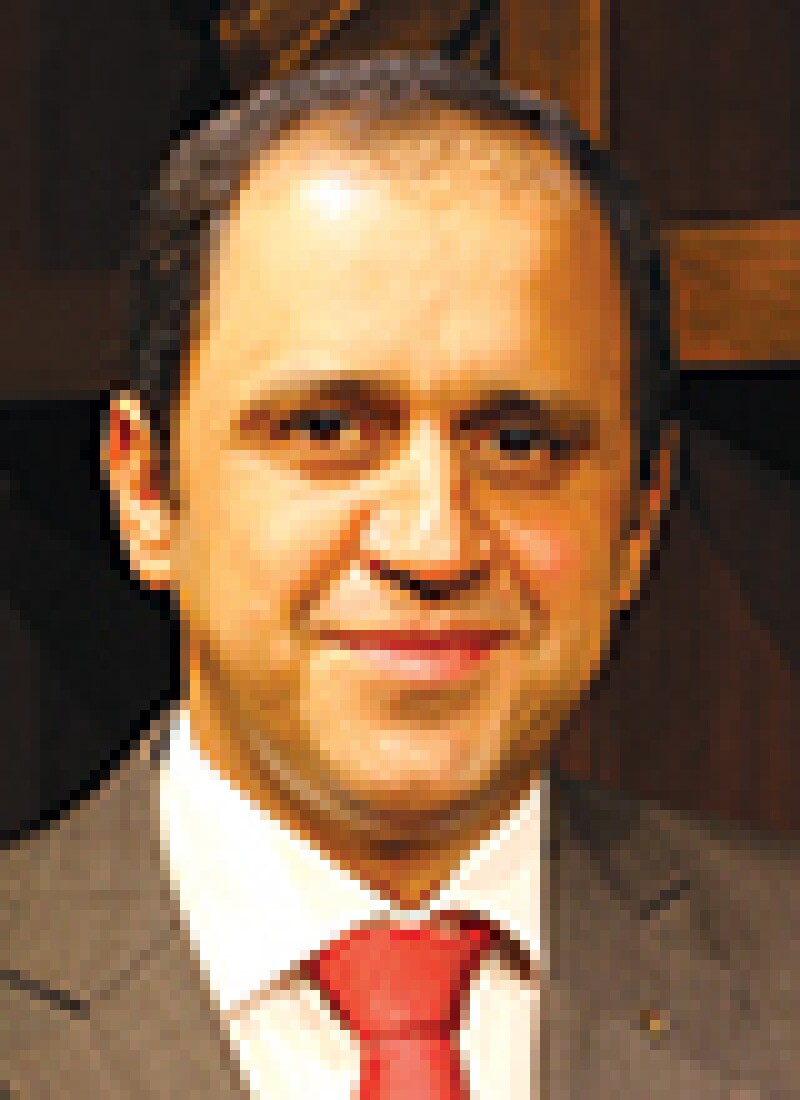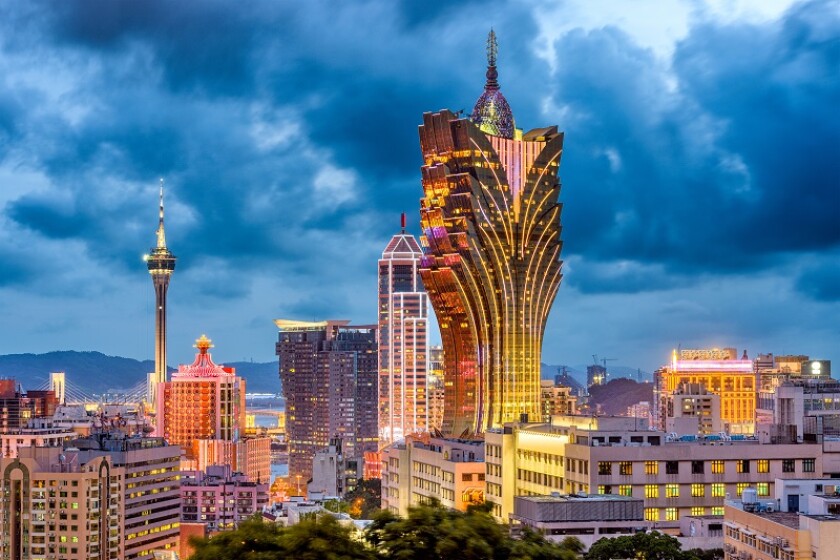The Macau Special Administrative Region is a former dependent territory under Portuguese administration. As with Hong Kong in 1997, Macau became a Special Administrative Region (SAR) of the People's Republic of China (PRC) on December 20 1999, marking the culmination of a process initiated by the signature of the Joint Declaration of the Government of the People's Republic of China and the Government of the Portuguese Republic in 1987.
Macau SAR runs its own independent public finance system and is self-governed, with the exception of foreign and defence affairs, which are within the responsibility of the central PRC government. Macau is free of foreign exchange control on current capital international transactions, having only a few tariffs or restrictions on foreign investment. Its economy is heavily dependent on tourism (mainly gaming) and light manufacturing (textiles and garments). Despite this fact, Macau is starting to turn is focus onto economic diversification, in order to create space for improvement.
The banking sector is currently looking for new opportunities with Portuguese-speaking countries. In fact, the Secretary of Economy and Finance of Macau SAR, Lionel Leong, has recently reinforced the need to establish a stronger cooperation between Portugal and Portuguese speaking (Lusophone) countries and Macau, creating a bridge through Macau SAR between Lusophone countries and China. This is being implemented through the development of several policies, such as: the authorisation to perform renminbi settlement services in trade of products and services with banks from Portuguese-speaking countries (2015); the launch of the real-time renminbi settlement system (2016); and the development of financial services typical of Macau, such as leasing contracts and wealth management. Furthermore, Macau SAR aims to become an international commercial arbitration centre between China and the Lusophone countries, as the current governing laws (Decree Law no. 29/96/M, dated June 11 1996, and Decree Law no. 55/98/M, dated November 23 1998) will be revoked and replaced by the new Arbitration Act, which is inspired by the United Nations Commission on International Trade Law (UNCITRAL) Model Law on International Commercial Arbitration.
Further, regarding the offshore system, on September 18 2017, Dispatch of the Chief Executive no. 323/2017 was published in the Official Gazette of the MSAR, stating that "considering the necessity to update the list of the offshore activities of commercial and auxiliary services allowed in the Macau Special Administrative Region", and "on the proposal of the Macao Trade and Investment Promotion Institute", the Chief Executive of the MSAR decrees, among other things, that "the list of the offshore activities of commercial and auxiliary services attached to Dispatch No. 236/GM/99, of 29 of October, as amended by Dispatch of the Chief Executive No. 205/2005, is substituted with the list attached to the present dispatch and of which it forms an integral part". This now comprehends "g) Trade in goods and services between China and Portuguese-speaking Countries".
Information from the Statistics and Census Service (DSEC) showed that at the end of 2016, stock of inward foreign direct investment (FDI) reached MOP$244 million (approximately $30 million). As to the major industries, the gaming sector took a dominant share of inward FDI, with the stock amounting to MOP$124 million at the end of 2016.
According to the Monetary Authority of Macau (AMCM), in the first quarter of 2018, the economy of Macau expanded by 9.2% year-on-year, higher than the 8.0% growth in the last quarter of 2017. This happened due to the increase in exports of services and private consumption expenditure. Exports of gaming and tourism services grew by 16.5% and 19.6% respectively.
AMCM highlights that, year-on-year, there are a few developments worth noticing in the first quarter of 2018. Total merchandise trade increased by 22.9% with total merchandise exports and total merchandise imports rising by 0.8% and 26.5% respectively. Exports of gaming and tourism services expanded by 16.0% due to increases in gross gaming revenue, visitor arrivals and total spending of visitors. Exports of both tourism and gaming services went up by 16.5% and 19.6%. As for imports of services, they grew by 34.2%.
Still according to the AMCM, gross gaming revenue was MOP76.75 billion in the first quarter of 2018, up 20.5% year-on-year. The revenue from games of chance is currently 99.7% of the total and made MOP76.51 billion, which translates into a growth of 20.5%.
Private consumption expenditure expanded as well and inflation remained stable, with private consumption expenditure growing by 4.8% and government final consumption expenditure by 2.2% year-on-year. Regarding the labour market, the AMCM states that it remained stable, with the unemployment rate going slightly down at 1.9% and with improved median monthly earnings, that went up by 6.7% year-on-year.
The AMCM shows that investment declined with private investment decreasing by 16.4%. On the other hand, public investment surged by 132.5%. New incorporated companies decreased to 19 but the value of registered capital grew by 51.5%. Regarding the newly established companies, 40.1% were operating in wholesale and retail trade, 20.9% in business services and 12.1% in construction.
The volume and value of property transactions rose, with the average transaction price per square metre of residential unit going up by 6.3% quarter-to-quarter and the number of building units purchased and sold by 69.7% quarter-to-quarter.
Total government revenue is at MOP31.33 billion and the 17.8% rise in tax revenue from gaming resulted in a fiscal surplus of MOP15.92 billion. This means that public finances continue to be rather strong.
The AMCM predicts that, for the second quarter of 2018, private consumption will remain stable, public investment should increase and investment may decrease due to the completion of large-scale tourism and entertainment facilities and residential buildings. Exports of services are anticipated to continue to grow having in consideration the increase in visitor arrivals, as well as the 19.4% rise in gross gaming revenue in April and May.
Economic growth should be expected in the second half year of 2018, however it may fall short in comparison to the second half of 2017. The AMCM states that economic growth in the second half year of 2018 'will continue to taper due to a relatively high base of comparison in the second half year of 2017'.
Overall, Macau's economy is stable and should continue to grow due to the rise of exports in gaming and tourism services, as well as other factors such as the satisfactory employment market and a low unemployment rate. The public finances are also stable and strong. This, allied with the awareness of the importance of increasing economic diversification, should mean economic growth for this year.
Economic diversity, an active role in the Belt and Road Initiative and the development of the Guangdong-Hong Kong-Macau Greater Bay Area, are also a must for the economy of Macau continue to grow.
About the author |
||

|
|
Pedro Cortés Senior partner, Rato Ling Lei & Cortés Advogados Macau T: +853 2856 2322 F: +853 2858 0991 Pedro Cortés has been a lawyer in Rato Ling Lei & Cortés since 2003 and a partner since 2006. He has extensive experience in gaming, corporate, finance and IP law. Pedro has professional membership in the Macau Lawyers Association, the Portuguese Bar Association, the Brazilian Bar Association (São Paulo) the Hong Kong Institute of Directors, the International Association of Gaming Advisors (IAGA), the International Bar Association (IBA), the Chartered Institute of Arbitrators (CIArb) and the Hong Kong Institute of Arbitrators (HKIA). He is also qualified to work as a lawyer in East Timor and is recognised by the Justice Department of Guangdong as a Cross-border Macau Lawyer. Pedro has been a contributor for several legal and non-legal publications, including China Outbound Investments, International Financial Law Review and International Law Office. |
About the author |
||

|
|
Helena da Nazaré Valente Senior associate, Rato Ling Lei & Cortés Advogados Macau T: +853 2856 2322 F: +853 2858 0991 Helena da Nazaré Valente has been a lawyer in Rato, Ling, Lei & Cortés since 2011. Previously, she had completed her lawyer's traineeship in Portugal with the law firm A R Montalvo e Associados. Helena has professional membership in the Macau Lawyers Association, the Portuguese Bar Association and the Chartered Institute of Arbitrators (CIArb). She is also recognised as a Cross-border Macau Lawyer by the Justice Department of Guangdong. Helena is a legal advisor to several private and public entities and has been a contributor to publications such as the International Law Office and Global Legal Group. |
